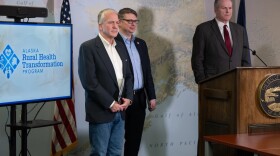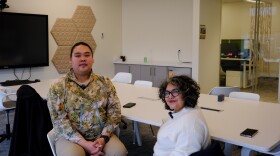-
Alaska is set to receive $273 million per year for five years from the program, created as part of President Trump's spending- and tax-cut law that passed in 2025.
-
The extension of the StrongHearts Native Helpline aims to keep culture and the reality of rural communities at the heart of its service.
-
U.S. Sen. Lisa Murkowski called the program a “lifesaver” for residents in Alaska when questioning Health and Human Services Secretary Robert F. Kennedy Jr. about its future.
-
On the Yukon-Kuskokwim Delta, researchers from the University of Alaska Fairbanks have worked with Alaska Native villages to build suicide prevention programs focused on community strengths, rather than just mitigating risks. The approach has shown such promise it’s now being piloted in a totally different group: the U.S. military.
-
An innovative program built around Yup’ik culture is helping to lead the way in the national conversations around the issue of suicide prevention. Financial and logistical obstacles have made implementation difficult in the Yukon-Kuskokwim Delta, where suicide rates have remained high.
-
For decades, the Yukon-Kuskokwim Delta has been home to the nation’s highest rates of suicide. In the 1980s, the backlash to a Pulitzer Prize-winning series helped prompt decades of work from Indigenous leaders to build innovative prevention programs from within the region focused on community strengths.
-
A comprehensive study by UAA researchers of childbirths over two decades shows geographic disparities and numerous risk factors, some of them cumulative.
-
Experts say Medicaid cuts would drive more Alaskans to emergency care, increase health care costs for all, and could harm the state's economy.
-
For the past few years, Bethel Family Clinic has been struggling to meet local health needs due to limited resources and outdated infrastructure. That may change thanks to a few sources of grant funding.
-
Narrowed gaps between provider reimbursements and medical costs and an aging population with more health problems are expected cost drivers, lawmakers are told.
-
For 56 communities across the region reliant on federal funds to support critical infrastructure and essential services, cuts at any level could have severe consequences.
-
The disease that was once Alaska’s top cause of death continues to circulate among descendants of those who lived during past epidemics in rural areas
















